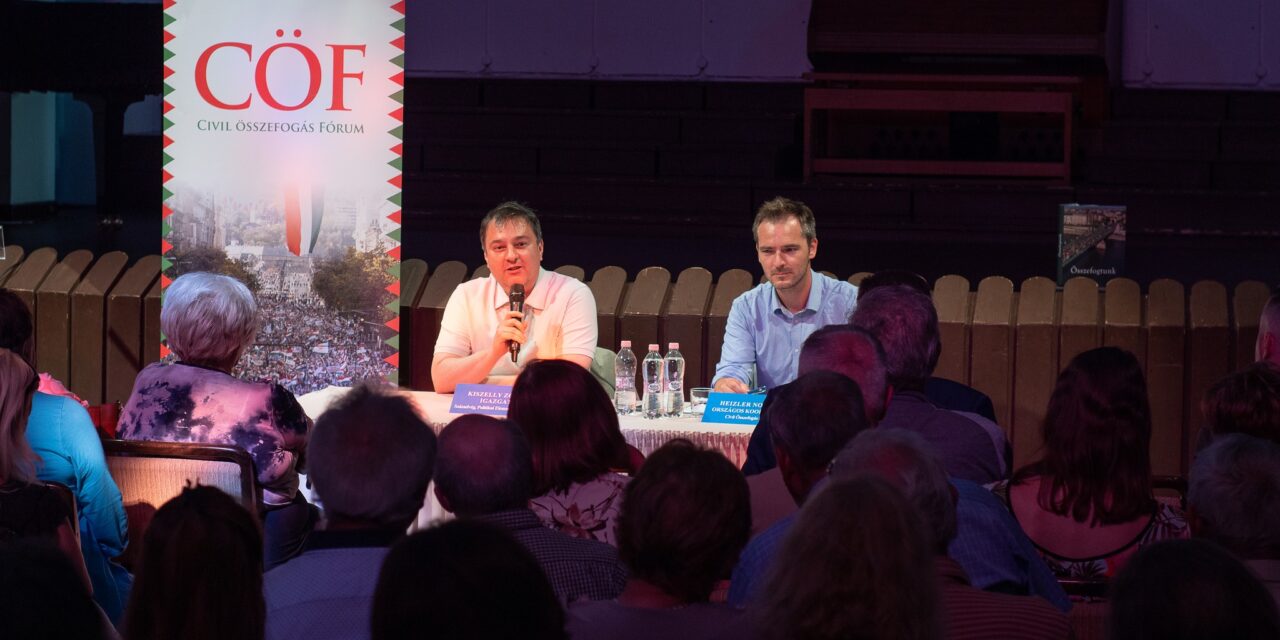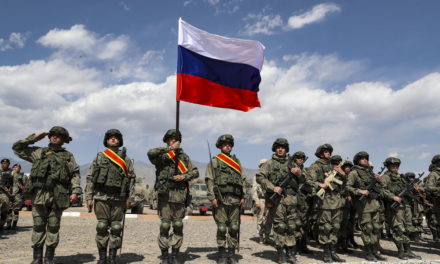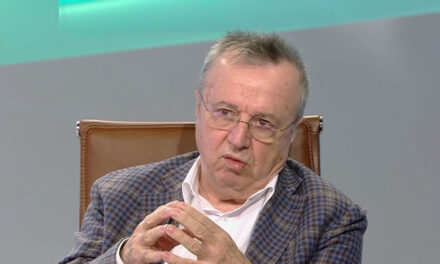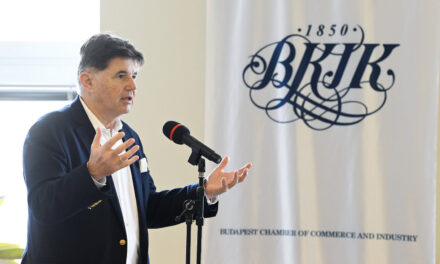A question that is asked several times a day, what is behind the Russian-Ukrainian war and how long will the senseless bloodshed last? Civil Academy of the CÖF club in Zalaegerszeg, political scientist Zoltán Kiszelly also tried to find an explanation for this. We will publish your opinion below.
– In every century there is a war that determines the power relations of that century. If we go back five hundred years, this was the case of the Mohács disaster, the 30 Years' War, the War of the Spanish Succession, World Wars I and II. It's a world war, and we're facing such a conflict right now. The difference is that we are in the nuclear age, which makes it more dangerous. So it's actually the 21st century. century, which greets us, is now boiling, this is the short answer to the cause of the war.
"This war is really about the fact that the Americans are sitting at the table of the twenty-first century together with the Chinese, and the Russians also want to fight there." So this is the big picture of which powers should be decisive in the twenty-first century.
America and China are already there, the Russians want to be there, India, Brazil, South Africa and of course the European Union also want to be there. As for whether this will be successful, I think that, unfortunately, it is not.
- We can understand the war in Ukraine by looking for the answer to the question of where Ukraine should belong. To the West or to the East. Now, as NATO is constantly being expanded to the East and the European Union wants to add more and more members, the Russians see that NATO is getting closer to them. They thought that Ukraine should be neutral, neither here nor there, but the Ukrainian elite thought that they would rather belong to NATO.
However, if Ukraine belongs to the West, to NATO, they can station missiles in Ukraine that can reach the Russian cities, Moscow and St. Petersburg in 5-7 minutes, and the Russians cannot take them down. So after they couldn't agree, that's why they started this war. We always say that this war violated international law. This is aggression. This is not the way to resolve conflicts. But the Russians thought otherwise.
"Unfortunately, now we're talking about weapons." Both the Russians and the Ukrainians think they can improve their situation on the battlefield. The Ukrainians now have a 60,000-strong army, which they trained in the West, they received 40-50 years of Western technology, and they really think that with these 50-60 thousand soldiers, they will take back as much land as possible. The bad news is that of these 60,000 soldiers trained in the West, 5,000 have already worn out. They lost 40-50 tanks out of the 400 they got, so their strength is getting smaller and smaller. They are waiting more and more and the longer they wait, the stronger the Russians will be.
"It was the same situation 80 years ago." The Germans were in the same place as the Ukrainians are now and were waiting to attack in the same way as the Ukrainians are now, and for the same reason.
The Germans also expected to receive more modern weapons in 1943, the Soviets took advantage of the time, as the Russians do now, to strengthen their positions. By the time the Germans attacked, there were already such strong Russian positions that, even though their technology was better, they could not withstand them. The same situation is repeating itself now, the Ukrainians are waiting, now they are waiting for planes and the situation of the Russians is improving every day. The sad thing is that we know with common sense that tens of thousands of people will die in the fighting.
"There is a theory that if three soldiers set off, one reaches the destination because two are killed on the way." Speaking in the language of mathematics, 40,000 of the 60,000 Ukrainian soldiers will be killed, fifteen to twenty thousand will remain. About the same number of Russians will die in this new attack and then we'll see what happens. I think the Russians will attack after that.
– By the way, we must note a very important difference between the Hungarian and Polish positions. We Hungarians have fought the Russians roughly four times in the last hundred and fifty years. We were defeated in 1848. In 1918, we reached a draw with the Germans, Germany and Russia made peace at Brest-Litovsk. Let's say it's a tie. The II. We suffered very heavy losses in the World War and were defeated in '56 as well. I don't think we want to go to war with the Russians again.
Others drew a different conclusion, notably the Poles. I think - last year's election showed this, the national consultation also showed this - that the majority of Hungarians want peace. I don't think anyone wants to send their son, grandson or husband to war. There is very little chance of survival. In Bahmut, the survival time of a person was 4 hours, he lived for 4 hours, who was not well trained. However, the Poles and others concluded that it was still worth fighting. If we were sitting here 80 years ago, say in May 1943, would the Hungarians of that time have said that it is better to fight at the Don than at the Danube and what happened? Two years later, the front came here. In May 1943, no one would have thought that the front could come here to Hungary.
– America is far away, but there are people in Western Europe who do not believe that the front came here two years after '43, so that God forbid it could happen again. So we Hungarians, I think, have come to the conclusion that peace is needed, negotiations are needed.
The question is, when can the war end? Now we can expect an offensive, whether it will be in the summer or in the fall, it is not yet known, but the bottom line is that unfortunately both sides still want to improve their position on the battlefield. …When these offensives are over, and we will see how far the Ukrainians can go, if they can hold their positions, if the Russians launch a counterattack, how far will it go, so it will be roughly another half a year, and then we will see if they enter -e new countries. That is why last year's election result is important. That is why it is important to support peace and the current government.
- If the Ukrainians run out - as I said, it is possible that only 20,000 of the 60,000 soldiers will remain - then surely other countries should jump in. A quick example from World War 1. The French were exhausted in World War 1 by 1915, the Germans machine-gunned them. He was the same blood pump as Bahmut is now. The English came. In 1916, the English were sent into battle instead of the French, and the Germans also machine-gunned them. The Americans came instead. One and a half million Americans had to be brought over at the end of '17 to prevent the Germans from defeating the French and the British.
God forbid that what is unfortunately expected now, if the Ukrainians run out, because, for example, they die in the offensive or cannot field another army. People have already been rounded up from shopping centers, we've seen the movies, so that means that the Poles and Romanians should go. And for those countries that are willing to do so.
And if our prime minister were not Viktor Orbán now, but Péter Márki Zay, who himself said in the election last year that he would send soldiers if asked, then maybe the Hungarians should go along with the Poles and Romanians. This government will not get involved in this, but if there had been a rainbow coalition, if Péter Márki had been Zay, the situation would have been different.
"We saw the statements." What did Mrs. Potocska say? Take the soldiers away, but not his son. Such politicians wanted to come to power and now such politicians want to come to power next year in the municipalities and in the European Union. That is why it is important to see this difference, that when we talk about a pro-peace world, or when we talk about staying out of this war, or about Hungary staying neutral, it means that if the Romanians, the Poles, and the Czechs and the Slovaks are sent to war by the globalists because they have such a government, then we can again show an alternative. As we did with migration. It was the same there.
What did they say? That we go head-to-head on the highway. We are stupid, we are heartless and what happened? Now they are building walls everywhere from Norway to Greece, and they are thinking about how they can send back those who were allowed in and received with teddy bears, because it's been almost 8 years and they don't know what to do with them.
We are the same with the pro-peace position. Let's trust him, let's be persistent, over time the Hungarian position will become the majority, and then it will really come to pass that it will not be about weapons, but about negotiations.
Source: civilek.info
Cover photo: Zoltán Kiszelly / Photo: Zoltán Balaicz, Facebook page of the mayor of Zalaegerszeg













